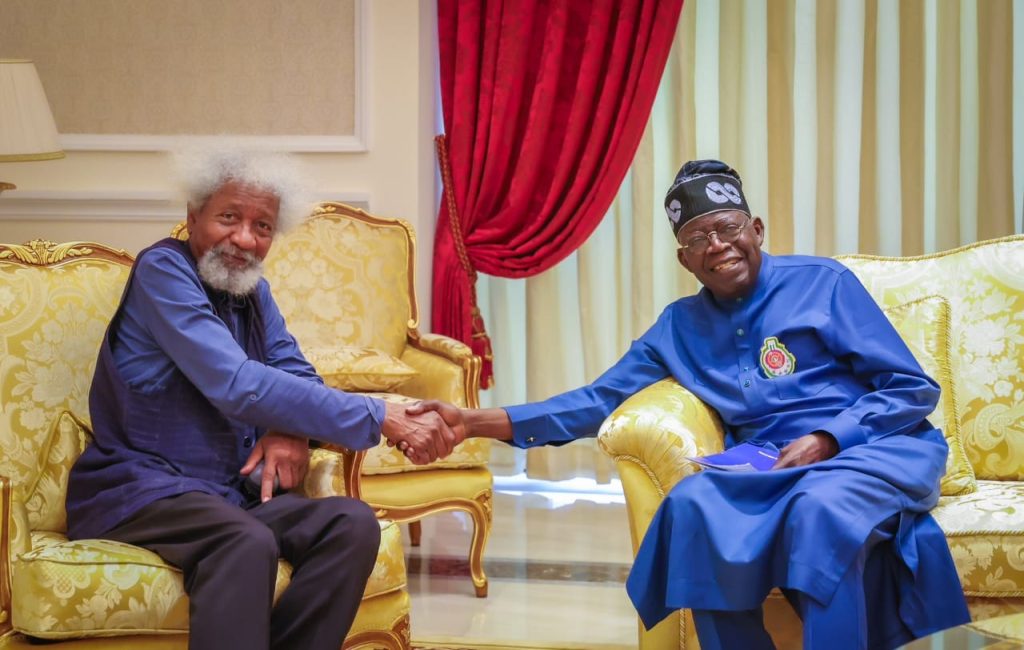Nigeria’s Nobel laureate and literary icon, Professor Wole Soyinka, has said he is not yet ready to publicly assess the administration of President Bola Tinubu, citing the frequent misrepresentation of his comments in the media.
Speaking during an interview with BBC News Yoruba published on Facebook on Tuesday, the globally acclaimed playwright and human rights activist explained that he preferred to take his time before making any public statement regarding the Tinubu government.
“I have been asked that question by several people,” Soyinka said, speaking in Yoruba. “I don’t want to answer because it seems as if there’s nothing one says that won’t be twisted, and I’m tired of that. So, I want to take my time. When it’s time, I will write my view on that.”
The 89-year-old author of Death and the King’s Horseman and The Man Died is known for his outspoken criticism of successive Nigerian governments. From the regimes of Olusegun Obasanjo and Goodluck Jonathan to the late Muhammadu Buhari, Soyinka has been a consistent voice against misgovernance and political repression. Yet, more than two years into Tinubu’s tenure, the laureate has refrained from issuing a public verdict on the current administration.
In previous years, Soyinka’s comments have often sparked national debate. In 2019, he lambasted President Buhari’s government for its handling of insecurity, declaring that it had “failed Nigerians.” Two years later, he told Kaftan TV that discussing the Buhari era was “best avoided for one’s sanity,” underscoring his frustration with Nigeria’s leadership trajectory.
Soyinka also addressed another controversy during the BBC Yoruba interview, the recent revocation of his United States B1/B2 visa.
READ ALSO: Why I prefer traditional worship to Christianity, Islam — Wole Soyinka
According to him, the US Consulate in Lagos requested that he bring his passport for the cancellation stamp, a suggestion he dismissed with characteristic wit.
“They are jokers,” Soyinka said.
“I should take my passport to those who revoked my visa? I told them they should come to my house and take it themselves. I cannot say I’ll be applying again or filling out any forms.”
Nonetheless, he clarified that he bore no ill will towards the American people, adding that if the US authorities ever reconsidered their decision, “they should bring the visa to my house, and they’ll need a visa to enter.”
Last week, during a media briefing at Kongi’s Harvest Art Gallery, Freedom Park, Lagos Island, Soyinka publicly announced that his visa had been revoked, noting that the reason for the decision remained unclear.
Meanwhile, the US Consulate in Lagos reiterated that the issuance of visas is a privilege, not a right.
“Every country, including the United States, can determine who enters its borders. Visas may be revoked at any time, at the discretion of the U.S. government,” the mission said in a statement.
As one of Africa’s most revered intellectuals, Soyinka’s measured silence on the Tinubu administration continues to draw public interest. For now, the laureate insists he will speak when the time is right — and when his words, as he hopes, will not be “twisted.”



